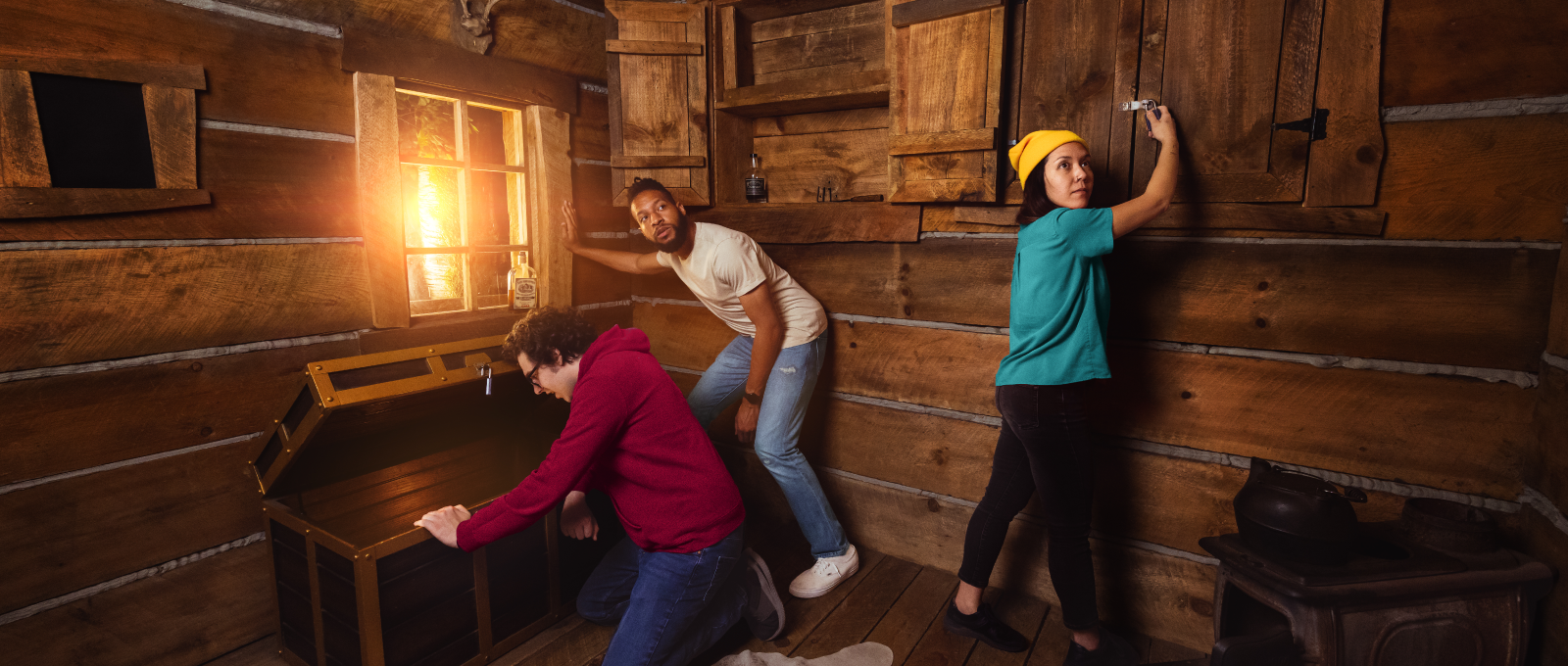Opening the Educational Benefits of Escape Room Obstacles
Incorporating escape space obstacles into instructional structures presents an one-of-a-kind opportunity to boost essential reasoning, promote team effort, and establish problem-solving skills amongst students. These engaging activities mimic real-world circumstances, promoting a setting of energetic learning where academic ideas shift right into functional applications. By merging home entertainment with education and learning, escape rooms not only increase trainee interaction yet also prepare them for future difficulties, needing strength and partnership. As we check out the diverse advantages of this cutting-edge technique, one have to take into consideration how these immersive experiences can improve traditional understanding standards. What more possibility does this technique hold for the scholastic globe?
Enhancing Critical Believing
Retreat room challenges function as a engaging and dynamic device for enhancing crucial believing skills. These immersive experiences need participants to fix a series of puzzles and puzzles within a set duration, fostering an atmosphere where cognitive skills are carefully examined and developed. The nature of escape spaces requires an organized technique to analytic, encouraging individuals to assess information critically, acknowledge patterns, and draw sensible verdicts.
Participants in retreat space difficulties are typically confronted with complex issues that require cutting-edge solutions, consequently promoting association of ideas. This kind of reasoning is vital for recognizing connections in between relatively unassociated ideas and for creating creative options. In addition, the stress of a ticking clock adds a component of urgency, pressing participants to think both rapidly and precisely.
Moreover, retreat room difficulties typically integrate a variety of puzzles that attract various cognitive strengths, such as sensible reasoning, spatial awareness, and mathematical abilities. This variety makes sure that participants work out a broad series of mental faculties, which is essential to detailed cognitive development. Fundamentally, getaway spaces produce a stimulating environment that not just entertains however likewise cultivates vital important believing capacities, making them a beneficial instructional tool.
Supporting Teamwork
Functioning with each other properly is a vital component of success in retreat space obstacles, as these tasks inherently demand collaboration amongst individuals. The organized environment of a retreat room requires that individuals merge their varied abilities, understanding, and viewpoints to address intricate troubles within a limited duration. This collaborative approach cultivates an understanding of the relevance of each group member's payments, thereby improving interpersonal abilities and shared respect.
In an educational context, getaway spaces function as a dynamic system for advertising synergy among students. By involving in these difficulties, trainees learn to interact more properly, delegate tasks based on specific toughness, and support one an additional under pressure - best escape room orlando. These experiences convert into enhanced group characteristics in class settings, where cooperative knowing is vital for scholastic success
Additionally, the interactive and immersive nature of escape rooms gives a functional, hands-on experience that enhances theoretical concepts connected to synergy. It permits individuals to exercise and refine necessary soft abilities, such as leadership, active listening, and conflict resolution. Consequently, escape area tests not only make finding out enjoyable but also prepare students for future real-world circumstances where teamwork is essential.
Establishing Problem-Solving Abilities
Developing problem-solving skills with escape space challenges supplies a special and interesting approach for refining vital believing abilities. These interactive settings present participants with a series of detailed challenges and circumstances that call for innovative and logical methods to fix. By navigating these obstacles, people are obliged to believe outside the box, adapt quickly to new details, and apply rational thinking in real-time.

The hands-on nature of retreat space obstacles fosters a feeling of necessity and enjoyment, which can substantially enhance trainee inspiration. They are extra most likely to spend initiative and interest right into the learning tasks when students are involved in a story that requires them to solve problems and conquer barriers. This heightened involvement can result in deeper understanding and retention of the material, as trainees are needed to use their knowledge in real-time scenarios.
Additionally, the joint element of getaway rooms promotes synergy and interaction skills. Incorporating escape area challenges into educational setups can be a powerful technique to boost trainee engagement and drive academic accomplishment.
Conclusion

Incorporating getaway room challenges into educational frameworks presents an one-of-a-kind opportunity to enhance essential thinking, promote teamwork, and establish analytical skills among students. As an outcome, visit their website escape room challenges not just make finding out enjoyable yet likewise prepare pupils for future real-world situations where synergy is important.
Engaging students in the discovering process is critical for scholastic success, and leave room obstacles supply a compelling remedy to this academic essential. Integrating escape area challenges right into educational settings can be a powerful method to boost trainee involvement and drive academic achievement.
The vibrant nature of escape areas effectively furnishes pupils with essential skills for scholastic and real-world success, inevitably enhancing the educational experience and preparing students for future challenges.